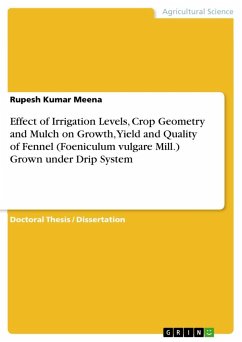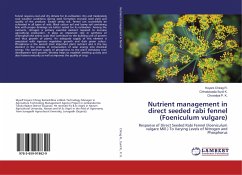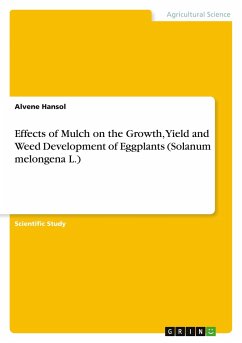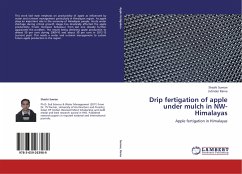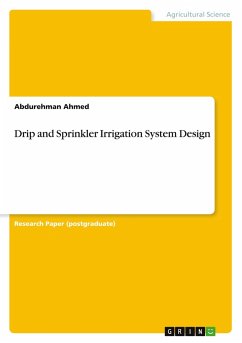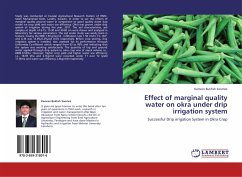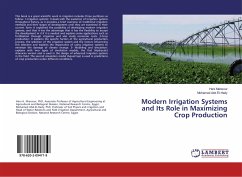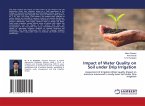Doctoral Thesis / Dissertation from the year 2018 in the subject Agrarian Studies, , language: English, abstract: A field experiment was conducted for two consecutive rabi seasons of 2015-16 and 2016-17 at Niche Area Excellence Farm, Swami Keshwanand Rajasthan Agricultural University, Bikaner to study the effect of irrigation levels, crop geometry and mulch on growth, yield and quality of fennel (Foeniculum vulgare Mill.) grown under drip system. The experiment was laid out in split plot design and replicated thrice. The treatments comprised of four irrigation levels viz. 0.4, 0.6, 0.8 and 1 ETc in the main plot, three crop geometry viz. normal sowing at 50 cm row spacing, paired row sowing at 60 cm x 40 cm and paired row sowing at 30 cm x 70 cm in the sub-plot and two mulch viz. no mulch and plastic mulch in the sub-sub plot. The soil was poor in organic carbon (0.10%), available nitrogen content (85.31 kg ha-1), medium in phosphorus (19.4 kg ha-1) and potassium (315.2 kg ha-1) content and saline in reaction pH (8.34). Fennel variety RF-101 with seed rate of 10 kg ha-1 was grown following the recommended package of practices for zone- IC (hyper arid partially irrigated western plain zone). The results revealed that growth, yield and quality of fennel were significantly influenced by different irrigation levels, crop geometry as well as mulch. Pooled mean results showed that irrigation at 1.0 ETc gave the highest plant height, dry matter accumulation at 40, 70, 100 DAS and harvest, branches plant-1, chlorophyll content of leaves at 75 DAS. However, irrigation at 0.8 ETc increased root parameters viz., fresh weight of root per plant, root dry weight per plant, root volume and root: shoot ratio recorded at 100 DAS. Irrigation level of 1.0 ETc recorded highest number of umbels plant-1, number of umbellates umbel-1, number of seeds umbel-1, test weight, seed yield (1714 kg ha-1), stover yield (3168 kg ha-1), biological yield (4851 kg ha-1), nitrogen content and uptake, oil yield, protein content, relative water content, net return (104988 ha-1) and B:C ratio (3.58), but all these parameters were at par with 0.8 ETc. However, water use efficiency (5.48 kg ha-1 mm-1) was highest at 0.6 ETc irrigation level. Results further revealed that irrigation level 0.8 ETc recorded significantly higher seed yield by 78.01 and 10.35%, stover yield by 29.09 and 6.11% and biological yield by 42.89 and 7.56% over 0.4 and 0.6 ETc irrigation levels, respectively.
Hinweis: Dieser Artikel kann nur an eine deutsche Lieferadresse ausgeliefert werden.
Hinweis: Dieser Artikel kann nur an eine deutsche Lieferadresse ausgeliefert werden.

